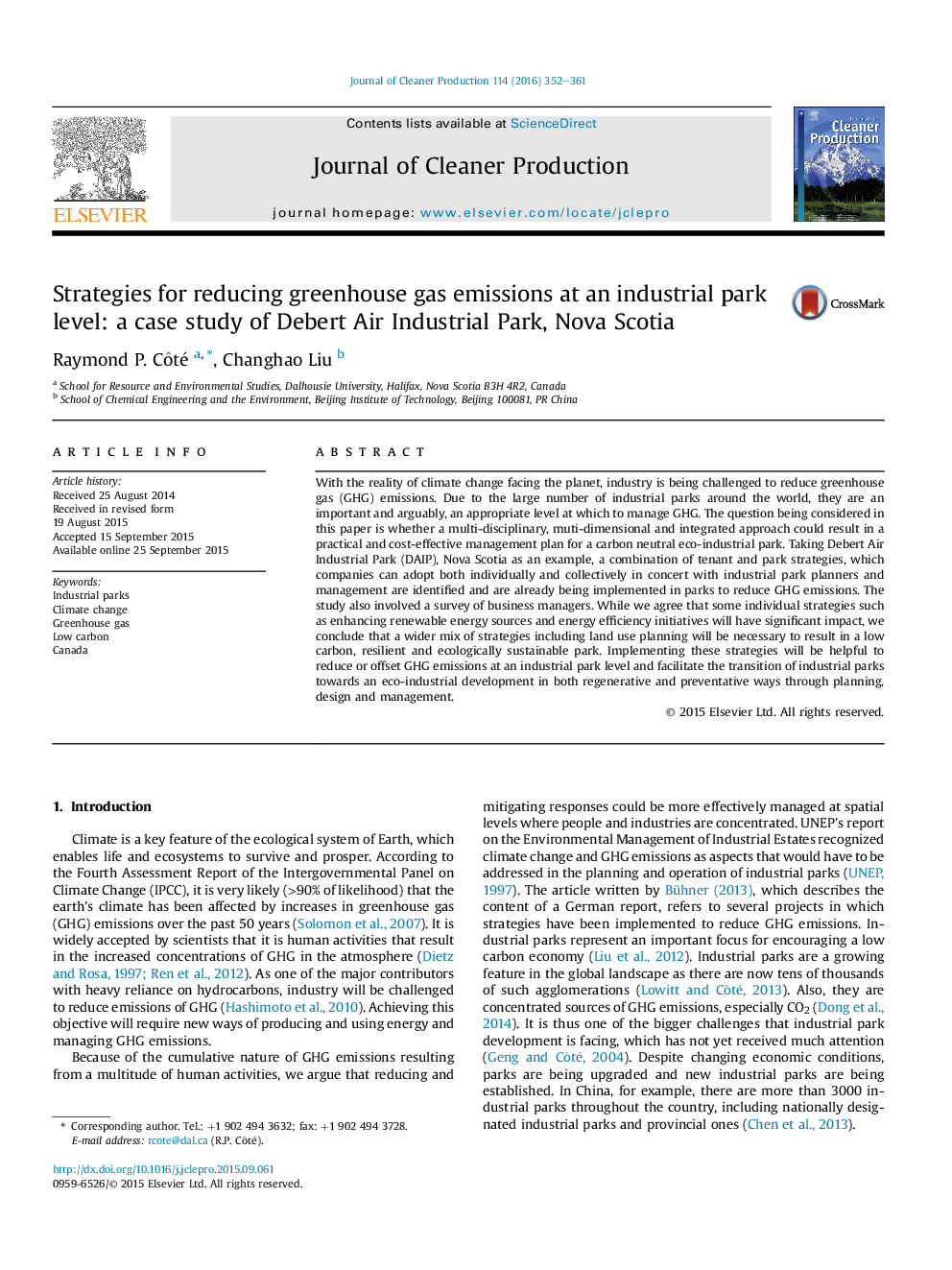| Article ID | Journal | Published Year | Pages | File Type |
|---|---|---|---|---|
| 8102762 | Journal of Cleaner Production | 2016 | 10 Pages |
Abstract
With the reality of climate change facing the planet, industry is being challenged to reduce greenhouse gas (GHG) emissions. Due to the large number of industrial parks around the world, they are an important and arguably, an appropriate level at which to manage GHG. The question being considered in this paper is whether a multi-disciplinary, muti-dimensional and integrated approach could result in a practical and cost-effective management plan for a carbon neutral eco-industrial park. Taking Debert Air Industrial Park (DAIP), Nova Scotia as an example, a combination of tenant and park strategies, which companies can adopt both individually and collectively in concert with industrial park planners and management are identified and are already being implemented in parks to reduce GHG emissions. The study also involved a survey of business managers. While we agree that some individual strategies such as enhancing renewable energy sources and energy efficiency initiatives will have significant impact, we conclude that a wider mix of strategies including land use planning will be necessary to result in a low carbon, resilient and ecologically sustainable park. Implementing these strategies will be helpful to reduce or offset GHG emissions at an industrial park level and facilitate the transition of industrial parks towards an eco-industrial development in both regenerative and preventative ways through planning, design and management.
Related Topics
Physical Sciences and Engineering
Energy
Renewable Energy, Sustainability and the Environment
Authors
Raymond P. Côté, Changhao Liu,
